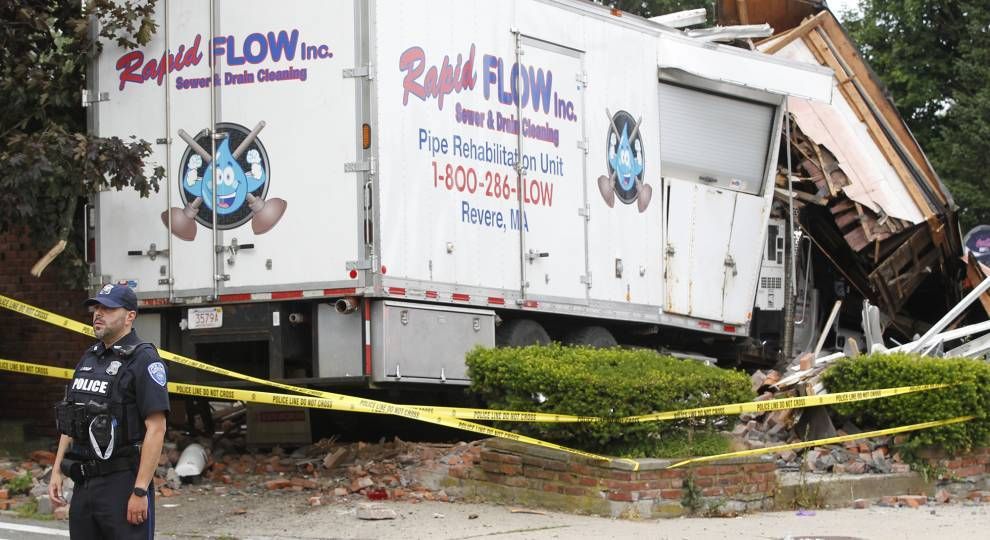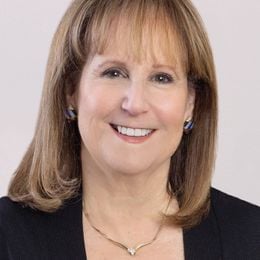Why Hate Crimes Against Black Americans Mean We Must Confront Our Nation's Past
Reflections on the recent murders in Winthrop, Mass.
On June 26, in the tiny seaside community of Winthrop, Mass., a 28-year-old white man identified by authorities as Nathan Allen crashed a stolen plumbing truck, then walked by several white people before shooting and killing the only two Black individuals near the scene, David Green and Ramona Cooper. Green, a retired state trooper, had rushed over to help after hearing the commotion in the neighborhood. Cooper was a 60-year-old Air Force veteran.

The assailant had notebooks containing hateful rhetoric against Black and Jewish people. "Racism is healthy and natural. And holding it in is bad for you," he wrote in his diary June 24.
We were not taught an American history that included the experience of Africans kidnapped, chained and enslaved.
His actions that day — now being investigated by the Suffolk County District Attorney as possible hate crimes — changed the lives of both victims' families and altered the sense of isolation and safety of those who live on this peninsula.
Growing Up in Winthrop
I was raised in Winthrop and throughout my childhood, it was a white working class, mostly Irish Catholic community. I knew one Black student in my high school whose last name was also Green. When David Green's image flashed on the news after the brutal murders, I saw something familiar in his eyes. When his correct age was reported days later, it was clear that the Green I knew was David's brother. It was the kindness in his eyes that I remembered.
I've been thinking a lot about David and his brother lately, and wonder about what racism they might have experienced in a predominantly white community.
The Greens likely sat through the same American history class I did with a teacher whose yellowed notes suggested an approach to his subject that did not change through the years. It was his classes on the Civil War, however, that left an indelible impact on many of us.
We were not taught an American history that included the experience of Africans kidnapped, chained and enslaved. No, in this class, the Civil War was strictly about economics and states' rights, not the lasting negative impacts of slavery.
Our teacher posited the notion that slaves were not mistreated, because, he said, that would go against the interests of slave owners. In his telling, it would make no economic sense to harm those you depended on to get your work done.
Learning the Truth About U.S. History
Efforts to argue that point failed. I was sickened by this, but never spoke about it with the Black students at the time.
Today, these memories haunt even more as I watch the unfounded criticism of critical race theory and related legislative efforts across the country to deny students the right to learn about all aspects of history and its institutional impacts.
I believe increased awareness of our nation's past and the experiences of Americans is an important step towards creating systemic change.
I think back to the changes promised by my boomer generation as Winthrop now mourns two dead public servants just steps from their homes. Their murders shocked the community, but they are not shocking to a country roiling from increased racist and anti-Semitic attacks and a resurgent white supremacy movement.
My generation actively engaged in, and was a product of, social movements that made a difference, but not enough of one. We held the promise of hope for a future that would offer our children a just and equal society. But that promise still eludes us, thwarted by inertia, differences, politics and fear.
Now we see younger generations galvanized for action. Only, this time, they have the world available at the touch of a keypad. Their idealism is matched by strategic acumen and a determination sharpened by the failures of the past.
Will anything be learned that can change the trajectory of our future?
Learning our unvarnished history may be the key to that elusive future of equal opportunity. We do not need to idealize or vilify the past. But unless we understand its truth, we remain susceptible to those who prey on fear by marketing a mythology and exhorting behaviors that promote ignorance to maintain power.
Winthrop now joins too many other communities whose names will evoke heartbreaking memories of deadly hatred. Will anything be learned that can change the trajectory of our future?
A Look to the Future
To do so, I believe, we must first change the trajectory of our past. Those yellowed history notes must be replaced with a vibrant conversation about the power, promise and failings of institutions.
We also need to channel the good in each other to combat the evil that lurks in the shadows.
It is not difficult to understand why so many politicians are leading the fight against an honest portrayal of our full history. They know that an accurate retelling may leave them exposed to the ages for their refusal to stop the incalculable suffering caused by maintaining the status quo.
In Judaism, my religion and one singled out for hate by Allen, the pursuit of justice is a sacred value. After a death, Jews say "May their memory be for a blessing," a statement meant to encourage us to keep their goodness alive in our own actions. That would be a fitting legacy for David Green and Ramona Cooper, whose tragic deaths should inspire us all to choose change, learn how history still determines our present and demand justice.


